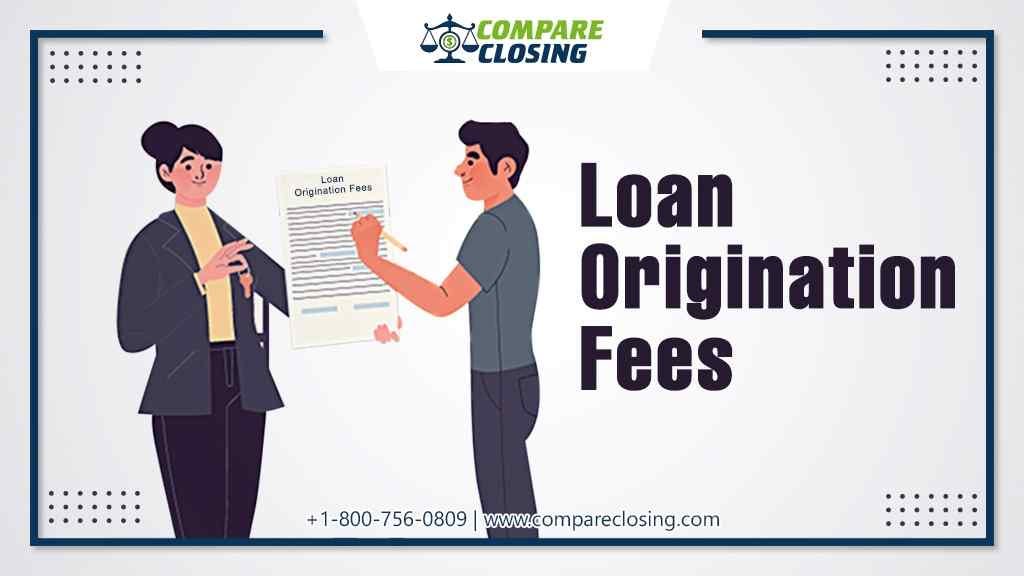
About Loan Origination Fees
When you are looking to buy a new home or refinancing the current mortgage, it comes at a cost.
Multiple charges are included in a property purchase or a refinance transaction. Most of the fees are standard.
However, there are a few which could affect the cost of borrowing. One of them is loan origination fees.
In this post, we will learn what is an origination fee in detail.
What is the Loan Origination Process?
Property purchase or refinance is funded with a mix of debt and equity. To secure debt funding, borrowers go through a multi-step process called loan origination.
This process begins with the borrower submitting financial information to the bank or the lender for a purchase or refinance of the property and getting the loan.
What is a Loan Origination Fee?
The loan origination fees are the fees charged by the lender to be compensated upfront for processing new loan applications.
These fees are used by the lenders to make more money and turn a higher profit per loan.
Loan origination fees are charged based on a percentage of the loan amount which could be anywhere between 0.5% to 1.0%.
Loan origination fees are part of the closing costs in a deal and are paid upfront. It is important to accurately account for them as they can be a huge expense.
It is also beneficial to negotiate with the lenders and shop around to get the best deal as interest rates can vary depending on credit ratings.
These fees are more beneficial to the lenders as they are meant to offset the lender’s cost associated with evaluating a loan application.
They every now and then also consist of the majority of income from the loans as these loans are regularly packaged and sold to mortgage investors who then make them obtainable on the bond market shortly after closing.
How much is a Loan Origination Fee?
A loan origination fee is usually anywhere between 0.5% to 1.0% of the loan amount. For example, if the loan amount is $300,000 and you got quotes from three different lenders.
If lender one is charging you origination fees of 0.5%, your final loan origination fees would be $1,500. If lender two is charging you 0.75%, it would be $2,250.
And if lender three is charging you 1%, your loan origination fees would be $3,000. The lenders will discuss the loan origination fees in the initial stage of the loan process.
The thing with the loan origination fees is that your lender has to put the same amount of effort into an $80,000 loan amount compared to what he has to put on a $500,000 loan amount.
Hence, usually to compensate for processing the borrower might get a higher loan origination fee for the lower loan amount.
Similarly, a lender might charge a lower origination fee for a higher loan amount to beat the competition.
How to Save on Loan Origination Fees?
Comparing your mortgage quotes is key here. Different lenders will charge different fees like loan origination.
It has been noticed that to kill the competition the lender may reduce the loan origination fee to get your business.
If you are planning to buy a property in a buyer’s market, you can negotiate with the seller to pay for your loan origination fees.
If you have an excellent credit profile, you can also negotiate with your lender directly to either lower or waive the mortgage origination fee without increasing your interest rate.
You can use the power of multiple quotes to negotiate with the lenders to get the best deals on the mortgage origination fees.
Conclusion
Many loan originators might add different charges under the name of loan origination fees.
Please make sure that you are working with trusted loan originators who will provide you with the right estimate on the fees and could guide you accordingly.
The loan origination fees are negotiable, so ensure once you receive the estimate don’t just take a word for it.
The choice of paying the loan origination fees depends on how loan you are planning to stay in the house. and whether you are able to recoup the fees within that time.
If it does make sense then paying for the loan origination fee can be a good bet.
https://www.compareclosing.com/blog/what-is-a-loan-origination-fees/
Comments
Post a Comment